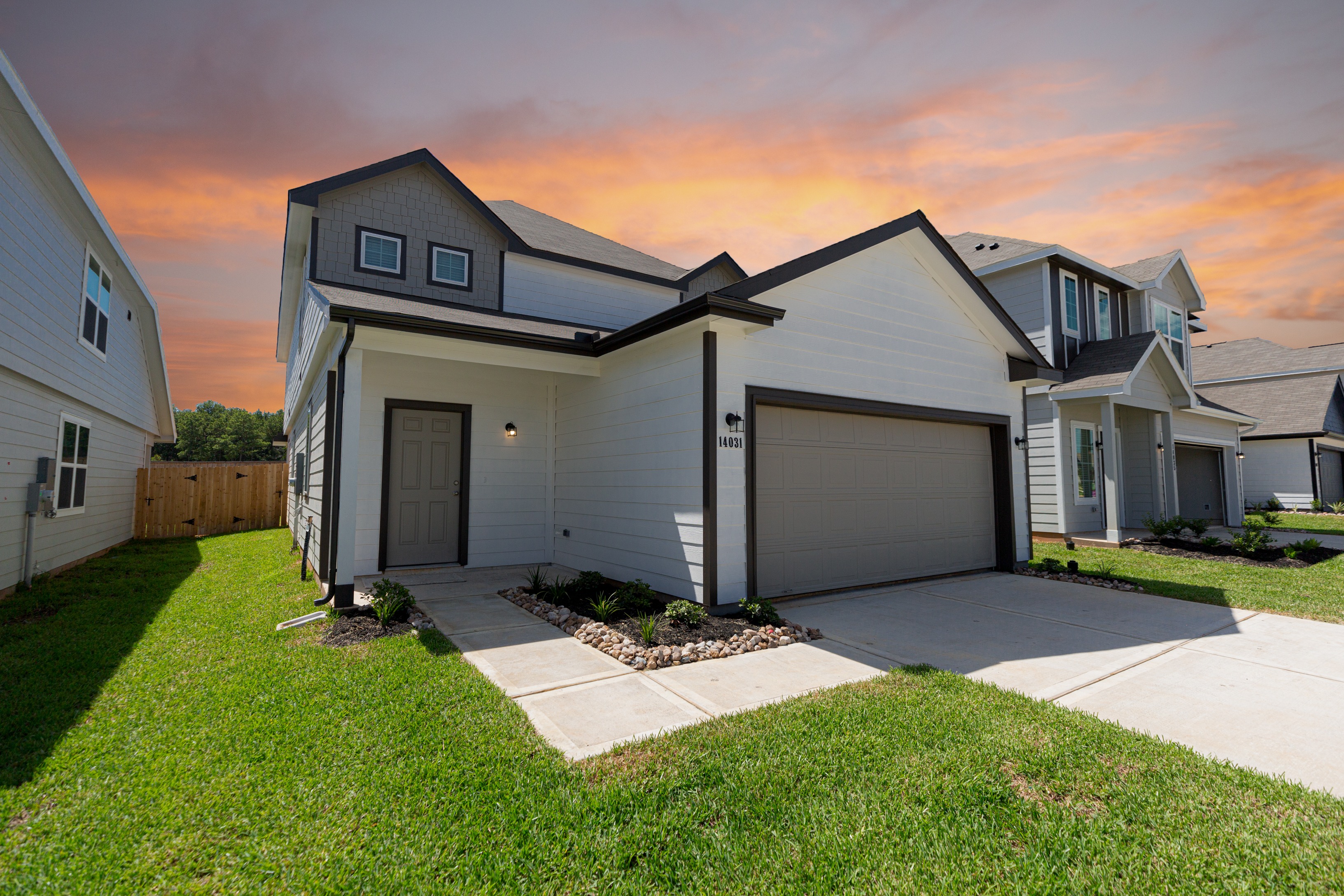Five Reasons Why First-Time Buyers Should Consider Purchasing a New Home
Before finding the perfect community and the right floorplan, you should first consider whether you want to buy a new home or a used residence. And while there are positives to both, one option is often better than the other. Find out why you should consider purchasing a newly constructed home instead of a used home.
Consider five reasons why first-time homebuyers should consider purchasing a new home:
1. Energy Efficiency
We’ve come a long way since the days of drafty log cabins in the woods. With smart construction, a newer home typically means better energy efficiency. And while tactics can vary from one home to the next, energy efficiency typically comes from …
- Tight construction: Special framing techniques—including continuous air barrier and sealing off penetrations—help reduce internal leaks and drafts.
- Improved thermal systems: Enhanced insulation techniques help to minimize voids and gaps, and higher thermal properties (R-values) add to energy efficiency.
- Right-sized HVAC: “Right-sized” heating and cooling systems and sealed air ducts help equipment work together efficiently. In these cases, “right-sized” refers to the process of determining which HVAC system should be used in a particular structure.
- Guaranteed performance: Written guarantees can be issued to homeowners on the amount of energy used for heating and cooling and comfort.
- Low-E windows: Low “emissivity” windows have protective coatings to help keep heat in during the winter and out during summer.
Each of these features benefits the homeowner as well as the house. According to the Home Energy Rating System (HERS), which is the industry standard for measuring a home’s energy efficiency, more efficient homes can …
- Lower homeownership costs in annual energy savings
- Improve air quality with better ventilation
- Keep home temperatures consistent, which avoids hot and cold spots
- Improve resale value, as energy-efficient homes can sell faster than traditional homes
- Reduce carbon emissions and protect the environment
- Boost the economy by supporting jobs in the industry
2. Less Maintenance
Even the most expertly constructed older homes still require maintenance. Not to mention that the more owners a single residence has occupied, the more likely it is that you’re stuck fixing someone else’s mistakes.
For example, a house built in 1956 may have been home to six or seven families in the nearly 70 years since its construction. It’s almost a certainty that past owners incorrectly installed fixtures themselves, misapplied paint, and made other common errors.
According to Home Repair Ninja, some of the most common home repairs include roof repair, water heater fixes, foundation repair, siding repair, HVAC fixes, and plenty more. In contrast, new homes use all-new materials, which means that maintenance costs can typically be kept to a minimum in the first few years of ownership.
3. Flexibility for Personalization

While not every homebuyer will customize their own home from the ground up, people who purchase early are typically able to customize certain aspects of their future home. This can include everything from finishes and accents to interior paint and more.
Then, once construction is finished and you’re able to move in, the home feels more like it’s “yours” right from the get-go. Plus, by customizing your home before construction completes, you’re able to avoid working with costly contractors to tweak amenities after the fact. These personalized details can also improve resale value when you’re ready to upgrade (if your family is growing) or downsize (if the kids have moved out).
Need some inspiration? Moving.com compiled a list of 14 of the coolest features to consider when moving into a new home. They include:
- Custom shelving
- Upstairs laundry room
- Mudroom
- Cabinet lighting
- Smart devices
- And plenty more
4. Planned Communities
Another key benefit of new construction? You’re living exactly where you want to be living.
A planned community is “a housing development where the homes, roads, stores and other features are carefully designed and orchestrated to make living there as convenient and enjoyable as can be,” per Realtor.com. In neighborhoods that aren’t master-planned, homeowners aren’t really sure what to expect from daily living. Maybe there’s a grocery store nearby, maybe not.
During the home search, planned communities help homebuyers find the amenities, safety, and nearby attractions that they’re looking for in a single package. Think things like community recreation centers, neighborhood pools, thoughtfully designed local parks, and plenty more.
Plus, new constructions are built with travel and commutes in mind, meaning that you’re less likely to waste time caught in traffic before you even get to the highway. These conveniences add up to a package that’s hard to beat.
5. More Time to Plan
New homes take time to build. When buyers get in early, they can find the right home for their lifestyle even before it’s finished, from community amenities and work commutes to nearby dining and shopping, and more.
This added convenience helps new homeowners plan accordingly. Between cross-country relocations, strict apartment leasing contracts, and big life changes that haven’t taken place yet, not everyone can uproot their lives right away.
New homes offer flexibility instead. As a result, people who buy new typically have more time to plan exactly how they want to furnish their homes, coordinate their moves, and end their rent leases or sell their current homes.





